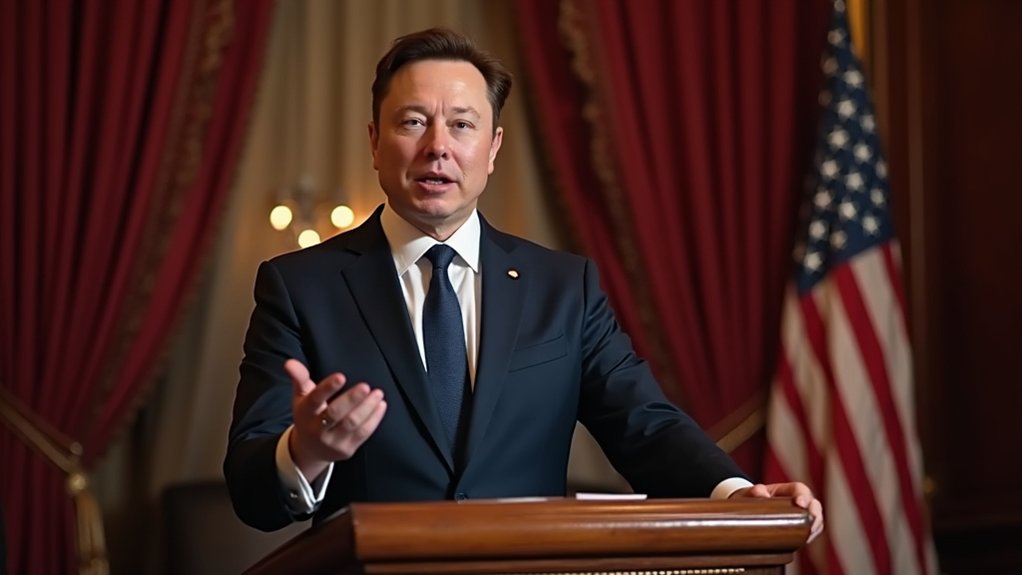When billionaire disruptors clash with political establishments, the resulting shockwaves tend to reshape entire landscapes—and Elon Musk’s latest venture into third-party politics exemplifies this phenomenon with characteristic audacity. The Tesla CEO’s official registration of the America Party represents more than mere political theater; it signals a calculated assault on the entrenched two-party duopoly that has dominated American politics for generations.
The genesis of this political experiment traces back to Musk’s public X poll, where 65% of 1.25 million participants endorsed breaking away from traditional party structures. This digital referendum, while hardly scientific, provided sufficient justification for Musk to formalize his opposition to what he terms the “two-party (some say uniparty)” system.
The timing proves particularly fascinating, coinciding with his spectacular fallout with Donald Trump over the former president’s “Big Beautiful Bill”—legislation Musk condemned as “debt slavery” and “massive, outrageous, pork-filled.”
The financial implications cannot be understated. Trump’s proposed phasing out of electric vehicle tax credits threatens Tesla’s bottom line by billions, transforming what might have been ideological disagreement into existential business concern. This convergence of personal financial interest and political principle creates a compelling narrative arc that transcends typical partisan squabbling.
Musk’s America Party ostensibly targets the “80% in the middle,” positioning itself as the voice of politically homeless Americans exhausted by extremist rhetoric from both major parties. The platform emphasizes reducing government overreach and fiscal responsibility—themes that dovetail conveniently with his DOGE Office experience, where aggressive cost-cutting yielded mixed public reception (46% positive, 47% negative). Much like DeFi’s approach to eliminating traditional intermediaries through smart contracts, Musk’s political movement seeks to bypass established party structures that have dominated American governance.
Musk’s America Party courts the exhausted political center with promises of fiscal discipline and reduced government overreach.
Yet significant regulatory hurdles await. Federal Election Commission requirements for political committee registration, ballot access complexities, and the historical graveyard of failed third-party movements (Unity08 being a prime example) suggest that good intentions and deep pockets don’t guarantee political success. California alone requires either 0.33% voter registration or 1.1 million signatures for new party qualification, illustrating the daunting bureaucratic maze facing emerging political movements.
Musk may find that disrupting Twitter’s business model proves considerably easier than dismantling America’s constitutional framework. The party’s strategic focus on 2-3 Senate seats and 8-10 House districts suggests a targeted approach rather than nationwide electoral ambitions.
The America Party’s ultimate test lies not in its registration paperwork, but in whether it can translate social media momentum into electoral viability—a challenge that has humbled many ambitious political entrepreneurs before him.








